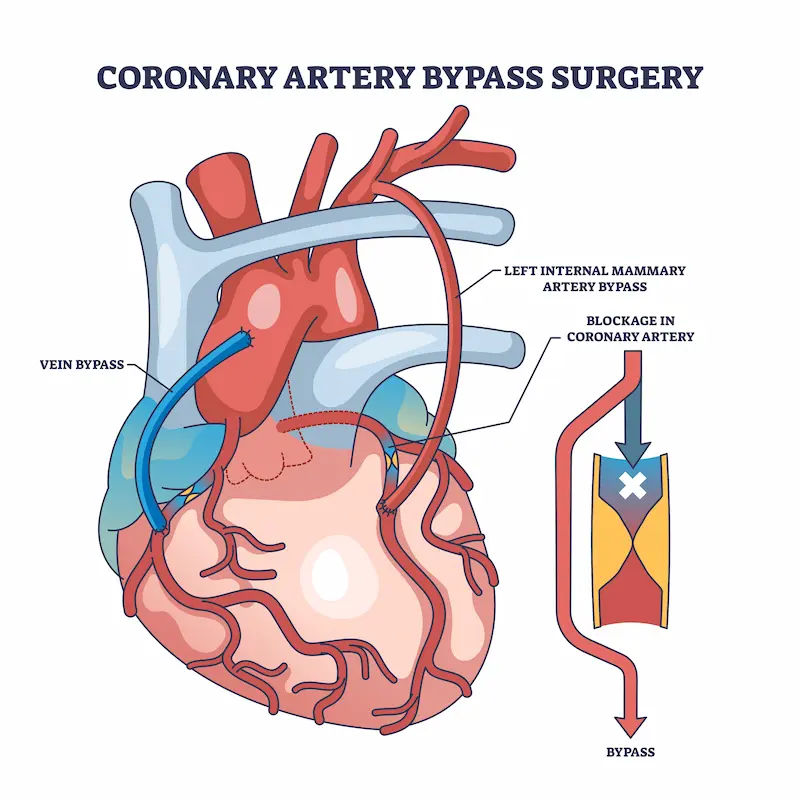- female
- 70 Years
- 20/02/2025
I'm concerned because my mother-in-law is scheduled for pacemaker surgery soon, and we recently lost a relative after a similar procedure. I'm really worried about what to expect. Whats the success rate of pacemaker surgeries? Are there usually a lot of complications afterward? And is it possible for someone to live normally after getting a pacemaker? Would love some guidance on what we should be prepared for.
Answered by 1 Apollo Doctors
Pacemaker surgery is generally considered a safe and effective procedure with a high success rate. Most patients experience significant improvements in quality of life and symptom relief after the surgery. While complications can occur, they are relatively rare and may include infection, bleeding, or issues with the pacemaker leads. Most people can live a normal, active life with a pacemaker, but it's important to follow the cardiologist's recommendations and attend regular follow-up appointments to ensure the device is functioning properly. Discuss your concerns with the cardiologist at Medanta Hospital to understand the specific risks and benefits in your mother-in-law's case.
Dr. Mubarak Suggests...
Consult a Cardiologist
Answered 04/07/2025
0
0


Ask Apollo
AI powered Health Chatbot
-
Success Rate of Pacemaker Surgeries
- Pacemaker implantation surgeries have a high success rate, typically above 95%. This highlights the procedure's effectiveness and safety.
-
Common Complications and Their Frequency
- Possible complications include infection, lead displacement, or bleeding. Serious complications are rare and manageable with prompt medical care.
-
Living Normally After Pacemaker Implantation
- Most patients can return to normal activities, including work and exercise, with some precautions and regular follow-up.
-
Follow-up Care and Monitoring
- Regular check-ups are crucial to ensure the pacemaker functions well and to address any issues early.
-
Medical Specialties Involved
- Cardiology and electrophysiology specialists manage pacemaker implantation and follow-up care.
-
Patient Support and Education
- Patients are encouraged to ask questions and understand their device to feel confident in managing their health post-surgery.
Recommended next steps
Consult a Cardiologist
Answered 10/09/2025
0
0
More Cardiology Health Queries
View allI'm a bit worried because for the past two days, I've been having some breathing discomfort, but it's not constant. It mostly happens after I've eaten in the afternoon and at night. I'm also experiencing some pain in my shoulder. I just started Zumba exercises, and it seems like this all started the day after. Do you think there's a connection? What's going on with my breathing and shoulder?
take tablet zerodol and tablet pantoprazole for 5 days
Answered by 1 Apollo Doctors
I'm really worried because I was just told I've got a ruptured mitral valve. Is this really serious? What should I be doing to take care of myself with this condition? Would really appreciate some advice on precautions.
Mitral valve rupture is a serious condition that can lead to complications if not managed properly. Some precautions you can take include: 1. Follow your doctor's treatment plan and take medications as prescribed. 2. Avoid strenuous physical activities and get plenty of rest. 3. Monitor your symptoms regularly and report any changes to your healthcare provider. 4. Maintain a healthy diet low in sodium and saturated fats. 5. Avoid smoking and limit alcohol consumption. 6. Stay up to date with regular follow-up appointments with your cardiologist. As for medications, you may be prescribed medications such as Lisinopril (ACE inhibitor) and Furosemide (diuretic) to help manage symptoms and prevent complications.
Answered by 1 Apollo Doctors
Can you help me understand if it's normal for me to actually see my chest and stomach move with my heartbeat? I've never noticed this before and it's kind of freaking me out. I've had an ECG and my heart rate checked, and they were both normal. What's going on here?
It is normal to see some movement in the chest and stomach with each heartbeat, especially in individuals with a thinner body build. This is known as the cardiac impulse. Since your ECG is normal and heart rate is also normal, there is likely no cause for concern. Just continue to monitor any changes in your symptoms.
Answered by 1 Apollo Doctors
Disclaimer: Answers on Apollo 247 are not intended to replace your doctor advice. Always seek help of a professional doctor in case of an medical emergency or ailment.



.webp)

